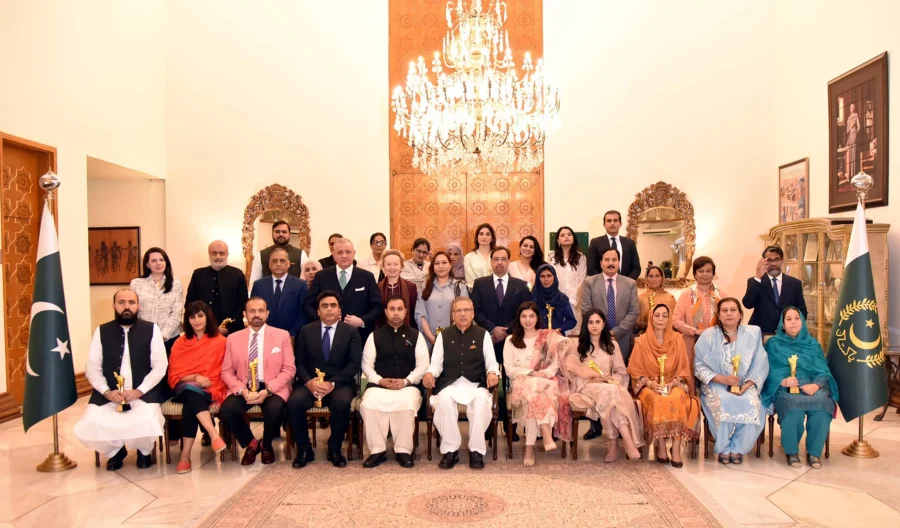Zubair Qureshi Islamabad
President Dr Arif Alvi on Wednesday stressed the need for gender-responsive policies to ensure women’s empowerment and said integration of the country’s fifty percent population into entrepreneurship was important for a sustainable economy.
“Women need to be given equal opportunities in education, employment, and political domains to help them secure adequate space in mainstream entrepreneurship,” he said at an event themed ‘Rising Women 2023’, organized by Women’s Business Network (WBN).
Ambassadors of Austria and Italy also addressed the audience on the occasion.
President Alvi called for devising demand-driven policies including a supportive institutional environment and a workplace free from harassment to encourage women to pursue their businesses.
The president highlighted making the information about entrepreneurship more accessible to women and pointed out that only five percent of women availed of the reserved quota of business loans from the State Bank due to a lack of guidance.
He stressed the implementation of family-friendly policies for women, such as opportunities for doing business from home and providing them a welcoming environment when they rejoin work after maternity leave.
The president emphasized providing household women with contemporary skill sets such as the usage of the internet to meet the current trends of the world.
“We need to train these women to adopt innovative entrepreneurial modes through the use of information technology to help them earn from their homes,” he said.
He mentioned that women could be turned into a productive workforce if provided with equal opportunities in all fields of life. He said the religion Islam and the country’s constitution ensured equal rights for women and supported their progress. Despite this, he regretted that absurd cultural norms prevailed in the country where women were denied the right to inheritance.
Ambassador of Austria Andrea Wicke spoke about the need to end gender discrimination and under-valuation of women’s work. She said equal pay, financial literacy, and legal protection were significant for women’s economic empowerment.








